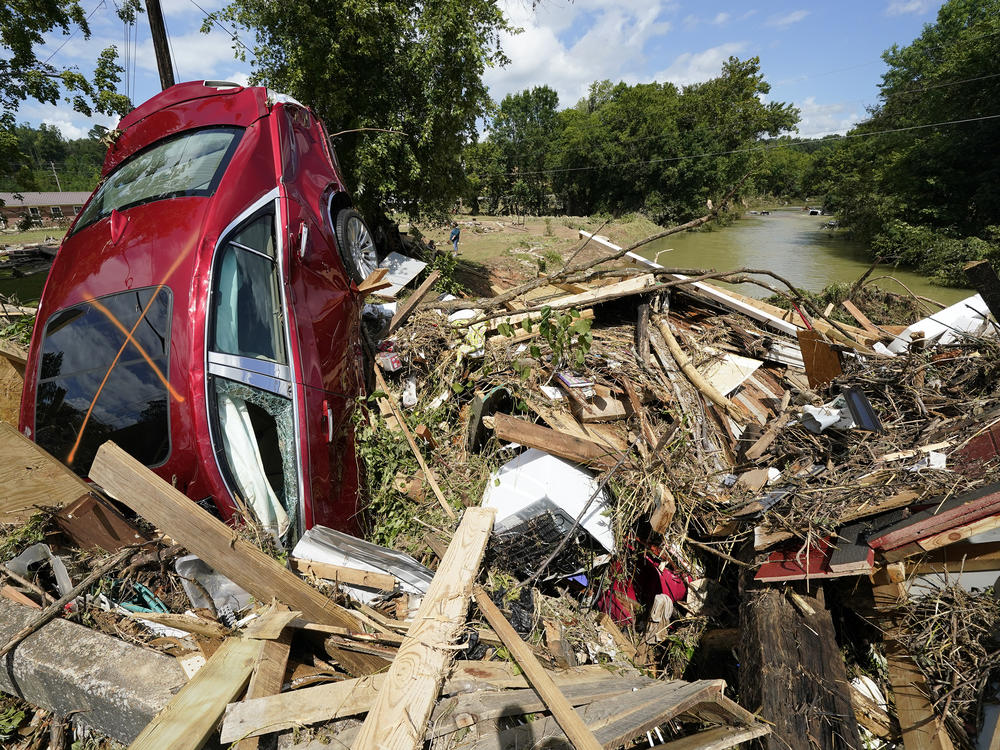Section Branding
Header Content
The Floods In Tennessee Aren't Freak Accidents. They're A New Reality
Primary Content
The rain fell fast and hard in Middle Tennessee over the weekend, harder than it has ever fallen before. Up to 17 inches of rain inundated parts of the state in less than 24 hours on Saturday. Streets turned into rivers. Water barreled through homes. At least 21 people died, and more are still missing.
It was another deadly example of climate change after a summer of climate-driven calamities. Flash flooding — when water rises very quickly and flows with enormous speed and power — is getting more common in many places as Earth heats up.
The deadly floods over the weekend were the second major flooding event in Tennessee this year. Torrential rain flooded parts of Nashville in March and killed at least four people.
Climate scientists have warned for decades that global warming would cause more heavy rain. Now, with Earth almost 2 degrees Fahrenheit hotter than it was in the late 1800s, scientists are observing that trend in real time. The amount of rain falling during the heaviest storms increased by almost a third in the Southeast U.S. between 1958 and 2016, according to the most recent National Climate Assessment.
That's because hotter air can hold more moisture.
Hotter air also dries out soil, which makes it less absorbent. When a lot of rain falls in a short period of time, it can't soak into the ground, and runoff overwhelms pipes, dams and other drainage infrastructure.
Floodwaters can knock down buildings and carry away cars. Just this summer, more than 180 people were killed in flash floods in Germany and Belgium after record-breaking rains. At least 25 people in central China drowned after being trapped by rising water, and more than 100 people in western India died after heavy rain triggered landslides and flash floods.
The Tennessee floods also underscore how climate change can drive dangerous flooding far from the coasts. Although Tennessee is landlocked, about a quarter million residents live in places that are prone to flooding, according to a 2015 analysis.
Copyright 2021 NPR. To see more, visit https://www.npr.org.

